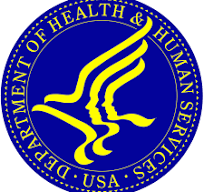The Affordable Care Act is often thought of as a tool to just make health insurance more accessible and affordable. But it’s a lot more than that.
There are lots of things in the Act about health insurance coverage (and hospital reimbursements) to keep people healthier (and less expensive).
One cornerstone of the ACA is its requirement that health insurance plans cover a range of preventive services without any patient co-pays… services like screenings, immunizations, behavioral counseling, and medications designed to catch or prevent diseases early—before they become costly and life-threatening.
The preventive services that private plans and Medicaid expansion programs must cover are based on those that have an A or B level recommendation by the U.S. Preventive Services Task Force and vaccines recommended by the Advisory Committee on Immunization Practices.
Those task forces use rigorous criteria to make sure all of their recommendations are evidence based. The US Supreme Court has now accepted a case that threatens to overturn this important coverage requirement.
A and B Recommendations | United States Preventive Services Taskforce
Those recommendations are grounded in rigorous, evidence-based research.
But now, this foundation of public health and cost control is under threat. Last week the U.S. Supreme Court has agreed to hear Braidwood Management Inc. v. Becerra, a case that could strike down the ACA’s preventive care coverage requirements.
If the Court overturns these provisions, the consequences for public health could be expensive in more ways than one.
Without guaranteed coverage without a co-pay many people will skip screenings, vaccines, or preventive medications because of the co-pay… leading more undiagnosed cancers (or later, deadlier diagnoses), untreated chronic diseases, and preventable infections—all of which would result in higher rates of hospitalizations and emergency treatments.
Explaining Litigation Challenging the ACA’s Preventive Services Requirements: Braidwood Management Inc. v. Becerra | KFF
The ripple effects would be felt across the health care system, driving up costs for insurers, employers, and taxpayers alike.
Preventive services aren’t just a public health priority—they’re a financial one. By catching diseases early or preventing them entirely, these services save money in the long run.
For example, a colonoscopy that detects and removes precancerous polyps is far cheaper than chemotherapy for advanced colorectal cancer.
Overturning these provisions would disproportionately harm low-income individuals and communities of color, worsening health inequities.
This isn’t just about insurance coverage—it’s about maintaining a healthier, more equitable, and cost-effective health care system.
The Supreme Court’s decision will shape the future of public health. Let’s hope they choose to uphold the ACA’s preventive care protections—for the health of individuals, families, and the entire nation.
Sadly, I’m not optimistic.
The new administration’s Solicitor General may not even defend the lawsuit, or if she or he does, they might do a bad job on purpose
